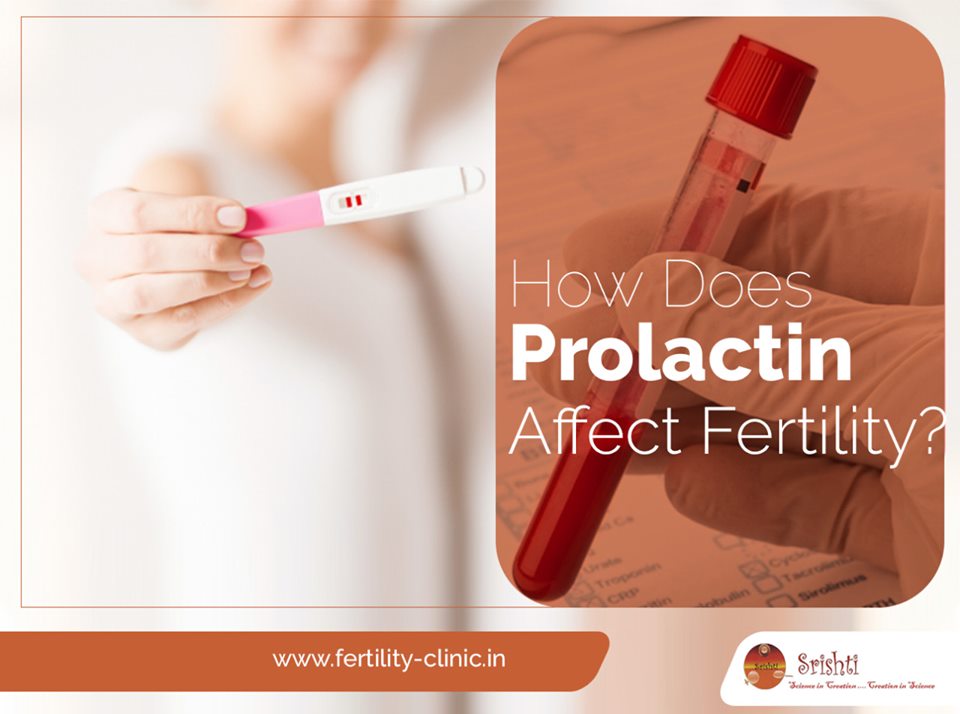Date :2019-11-13
Writen By :Srishti Hospital
Prolactin is a multi-talented protein hormone that is produced by the pituitary gland. Apart from the pituitary, the hormone is also produced and secreted by other cells in the body, such as the immune cells, uterus, brain, breast, and the prostate. It is the hormone that controls breast milk production in women who are pregnant or breastfeeding.

Most women have a misconception that high levels of prolactin signify more excellent fertility rates. In fact, the reverse is true. Too much prolactin can hamper the women's fertility levels. Too much prolactin in the bloodstream is known as hyperprolactinemia, a condition that inhibits the secretion of the follicle-stimulating hormone due to which suppression of ovulation takes place.
Prolactin receptors found on the endometrial lining of the uterus help secrete endometrial prolactin that helps maintain endometrial receptivity and provide an optimal environment for the implantation of the blastocyst transferred during Invitro fertilization procedure. High levels of prolactin during the transfer will inhibit the proliferation of luteinizing hormones (cells that trigger ovulation and development of corpus luteum) and interfere with the functioning of corpus luteum resulting in luteal phase defect. Corpus luteum is the cells formed in the ovaries that are essential for establishing and maintaining pregnancy. They also help produce progesterone hormones during early pregnancy.
High prolactin levels even adversely affect the outcome of the IVF treatment as they also do not allow proper development of the embryo to take place and even lead to abnormal implantation. Studies even suggest that high prolactin levels might even affect the sperm, resulting in impairment of their reproductive capability.
It is always suggested to check the prolactin level before the start of the Invitro fertilization treatments for a positive outcome. Usually, doctors recommend the prolactin test if
- Someone is producing breast milk without being pregnant
- Experience irregular periods and infertility problems
- Has any pituitary disorder
- Has a medical condition that affects the amount of dopamine the body makes
The prolactin is measured trough the blood sample taken during the first two days of the period cycle in the morning to avoid high levels of the hormone during the ovulation period. Apart from the fertility issues, high levels of prolactin might even indicate the presence of an underactive thyroid, PCOS, stress, liver, or kidney problems.
If the prolactin level is high for an individual, the doctor would suggest medication to even out or suppress the levels before the start of the IVF procedure.

At SRISHTI HOSPITAL, PUDUCHERRY doctors make sure to check all the hormonal values before the start of the treatment and to control any imbalances trough required medication for a positive IVF outcome.

Blog Reviewed By: Dr. Soumyaroop Dash
Mail Us: srishti.fertility@gmail.com
Book an appointment: fertility-clinic.in/book-appointment













